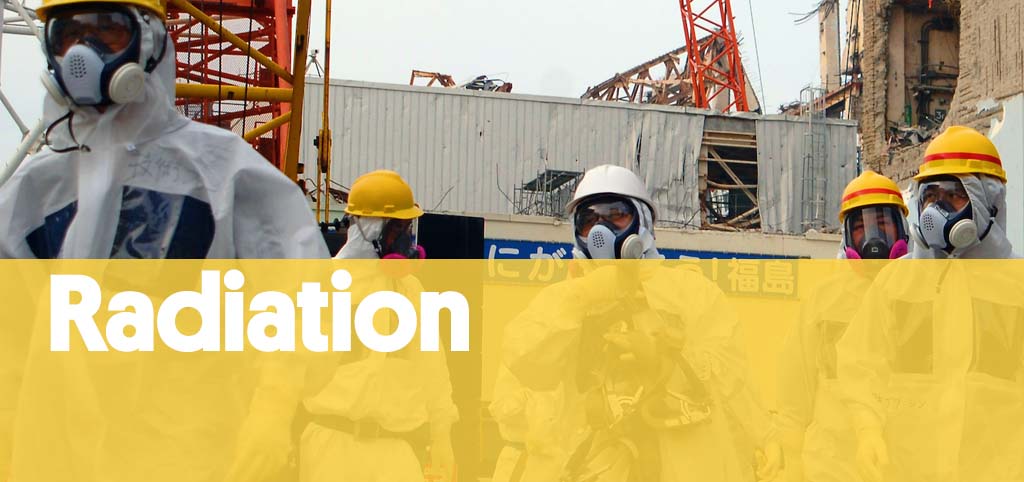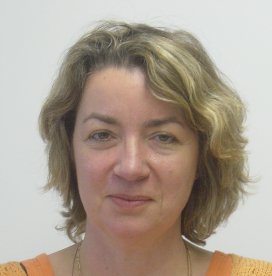ARCH-Agenda for research on Chernobyl health: to develop of a strategic plan for research on the health consequences of Radiation from the Chernobyl Accident

- Duration
- 2009-2010
- Coordinator
- IARC, France
- Funded by
- European Comission
The validity of extrapolating radiation risk estimates based mainly on studies of the atomic bomb exposures to low dose chronic exposures received due to the accident is controversiall but of great public health importance. Questions relate to the choice of models for transport of risk between populations projection of risks over time extrapolation of risks from external high dose rate exposure to low dose and low dose-rate exposues from a mixture of internal and external radiation. Questions also concern non-cancer risks are the importance of non-targeted effects following low levels of radiation.
Chernobyl has an iconic status in public opinion, and the accident provides a unique opportunity to answer these questions, to provide the authoritative studies needed to inform the nuclear debate, and to test new hypotheses about radiation effects and biology / genetics in general. Given the vast range of potential studies, this project aims to develop a strategic research agenda on the health consequences of exposure to radiation from the Chernobyl accident.
The modus operandi is the assembly of a multidisciplinary group of experts, from within and outside the most affected states, who have considerable experience in the follow-up of the health consequences of the accident. The group is identifying and prioritizing (short and long term) the potential studies, assessing their feasibility, cost-effectiveness and likelihood of success, and preparing a reasoned and comprehensive strategic agenda for future research. The strategic research agenda will be provided in the fall of 2010 detailed proposals for priority research areas in the short term are already prepared and available (http://arch.iarc.fr/documents/index.php).
Our Team
Principal Investigator (PI)
-
 Elisabet Cardis Research Professor, Head of the Radiation Group
Elisabet Cardis Research Professor, Head of the Radiation Group
Other projects
See Past ProjectsMCC-Spain
Population based multicasecontrol study on common tumours in Spain
INMA - Environment and Childhood Project
HELIX
Novel tools for integrating early-life environmental exposures and child health across Europe
EGG/EAGLE
Early Genetics Growth/Early Genetics and Lifecourse Epidemiology
PACE
Pregnancy and Childhood Epigenetics
LIFECYCLE
Early-life stressors and LifeCycle health
OMEGA-NET
Network on the Coordination and Harmonisation of European Occupational Cohorts
BiSC (Barcelona Life Study Cohort)
HARMONIC
Health effects of cArdiac fluoRoscopy and mOdern radIotherapy in paediatriCs
Mobilise-D
Connecting digital mobility assessment to clinical outcomes for regulatory and clinical endorsement
EARLY-ADAPT
Signs of Early Adaptation to Climate Change
COVICAT
Cohorte Covid-19 en Cataluña
ATHLETE
Advancing Tools for Human Early Lifecourse Exposome Research and Translation
CONTENT
Cohort of COVID-19 in Spain: social dynamics, mental health and inequalities
EUCAN-Connect
A federated FAIR platform enabling large-scale analysis of high-value cohort data connecting Europe and Canada in personalized health
OBERON
An integrative strategy of testing systems for identification of EDs related to metabolic disorders
EXPANSE
EXposome Powered tools for healthy living in urbAN SEttings
AURORA 2021
Actionable eUropean ROadmap for early-life health Risk Assessment of micro- and nanoplastics
ONES
Fine Particle Matter, Fetal Growth, and Neurodevelopment: Examining Critical Windows of Susceptibility
AIR-NB
Pre-natal exposure to urban AIR pollution and pre- and post-Natal Brain development
El impacto de la exposición al metaboloma de esteroides materno-fetales en el crecimiento infantil y los resultados neurológicos (IGRO)
Project Code: PI21/01269
NutinBrain
The role of seafood and nut consumption on human neurodevelopment from pregnancy to adolescence
ALTER - Contaminación del aire, microbiota intestinal y neurodesarrollo en los primeros 24 meses de vida
Project Code: PI21/01278
Alimentación S2: por una dieta saludable y sostenible
Estudio sobre la exposición a nano y microplásticos a través del agua de consumo de Barcelona
¿Es mejor consumir el agua de grifo si queremos reducir la exposición a nano/micropláticos?
UrbanKids
Urban and social environment and childhood obesity – a natural moving2health experiment
Urban Health Citizen Lab
Urban planning, environment and health
Characterizing Oral Exposure to Nanoplastics and Microplastics
Characterization of Oral NMP Exposure
iGenCO
In-Depth Genomics and Cross-Omics Analysis for Undiagnosed Rare Diseases on a User-Friendly Collaborative Platform
5G expOsure, causaL effects, and rIsk perception through citizen engAgemenT
GOLIAT
CityExposomeCat
An Exposome Approach to Urban Health: Individualized Environmental Exposure Assessment in an Adults Population Cohort Study (GCAT)
TwinAir
Digital Twins Enabled Indoor Air Quality Management for Healthy Living
Subclinical Infections in Children and Long Term Health Effects
Infection acquisition in early life and health outcomes in childhood - MARATO TV3
UBDPOLICY
The Urban Burden of Disease Estimation for POLICY Making
Exposición prenatal a sustancias poli y perfluoradas en agua de consumo y neurodesarrollo en el inicio de la vida
Project Code: PI20/00829
Base genética materna y fetal de la función placentaria
Project Code: PI20/01116
TOLIFE
Combining Artificial Intelligence and smart sensing TOward better management and improved quality of LIFE in chronic obstructive pulmonary disease
BWater
Drinking Water in Barcelona: Sustainability and Health Impact Assessment
CUPID
intoDBP
Innovative Tools to Control Organic Matter and Disinfection Byproducts in Drinking Water
FINDOOR
FTIR spectroscopy for real-time detection of bacterial outbreaks and the rapid identification of pathogenic serotypes, relapsing infections and antibiotic resistance
OccRF-Health
Occupational exposure to radiofrequency electromagnetic fields: From exposure assessment to study of health in workers and their offspring
EPHOR
Exposome Project for Health and Occupational Research
EXPONIT
Analysing and studying how night shift work affects workers' circadian rhythms and health
IHEN
International Human Exposome Network
El microbioma intestinal y la disrupción circadiana
Un estudio epidemiológico molecular sobre enfermedades cardiometabólicas y salud mental
B-Triage
Una prueba en el punto de atención para la estratificación del riesgo de los pacientes febriles basada en los niveles de sTREM-1
e-QuoL
e-health tools to promote Equality in Quality of Life for childhood to young adulthood cancer patients, survivors and their families



